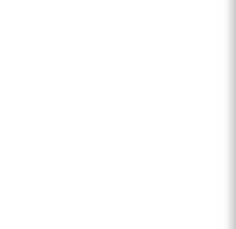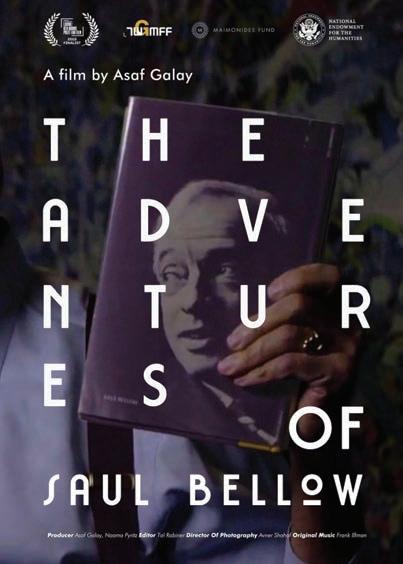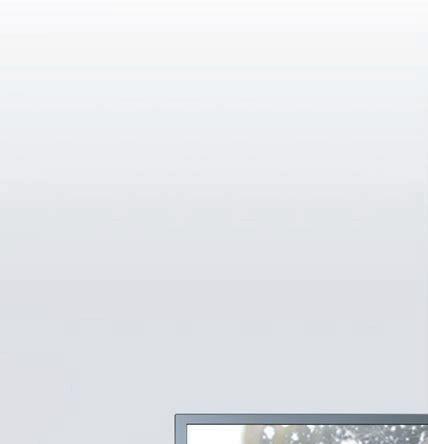
16 minute read
FOR THE RECORD
our community,” he said. “And so, it’s always the bad news. ere’s really never any positive re ections.”
Regarding news coverage of the Black Panther Party, the journalism
The Future
For
Goldenites
In more recent years, especially in the wake of George Floyd’s murder and the Black Lives Matter rallies in summer 2020, the Golden community has started examining the long reach of systemic racism in and around the city. e City of Golden started work on its Racial Equity, Diversity and Inclusion Action Plan, and groups like Golden United and Golden Anti-Racism Collective formed.
While these are good rst steps, real change has to start with people’s attitudes, GAC members Scrable and Michele Minihane said.
Although many Goldenites are open-minded and inclusive, Minihane personally believed there are still some residents who “do not value an integrated community and don’t feel like it’s important to make people of color feel welcome.”
She added: “I don’t get the sense that (attitudes) have changed a lot in 40 or 50 years.” e two described how the Golden Anti-Racism Collective has become a place where people can share their experiences, examine systemic racism’s impact on the community, and nd ways to improve Golden for current and future generations. e group has established a unique partnership with the Golden Police Department, as some of its members sit on the department’s community engagement group, GAC member Sandra Knecht explained.
Scrable agreed that tangible changes, whether in attitudes or policies, have been slow. He said it’s going to take time and everyone working together to make Golden a more welcoming and inclusive place.
As of last month, GAC has about 400 members on an email list and a few dozen who come to its regular meetings. ere are several subgroups within the Golden Anti-Racism Collective that tackle di erent topics such as policy and policing, education, and books and media.
While the bulk of the members are White, any Goldenites of color are welcome to join and participate as they’re able, the members said.
GAC and other community members have given feedback on various department policies, particularly around use of force.
GAC members also try to comment on City Council discussions and participate in other local matters, including education, youth outreach and a ordable housing. In doing so, the group has developed partnerships with Shelton Elementary, the Golden Library, Colorado School of Mines student groups, Golden United and other groups that share GAC’s goals.
Similar to GAC, Golden United formed after the 2016 election as “there was a fair amount of division, nationally and locally,” Ronnie professor described it as a peaceful organization that was responding to violence “against African-American people in an attempt to say, ‘We will protect our community.’”
“ e idea was that Black folks with guns clearly scared the hell out of people,” Porter continued. “Because obviously, if you’ve got a gun, then you’re going to be violent. And it’s
Rosenbaum said. e group sought to bring people together and encourage respect for those who have di erent ideas and opinions.
Rosenbaum, who’s vice president on Golden United’s board of directors, described the partnership between Golden United and GAC, saying the two groups and others joined forces for a rally in summer 2020 and pushed City Council to approve the “Golden Stands with Black Lives” banner on Washington Avenue.
Minihane stressed how the GAC believes systemic racism impacts all Golden residents, regardless of race, and recommended locals read “ e Sum of Us” by Heather McGhee to learn more about that impact.
For the City of Golden ese resolutions included:
In summer 2020, the Golden City Council produced a series of resolutions meant to address its history of racial exclusion and racist domination of non-White groups, Tellis stated.
• Resolution 2736 – Declaring Racism a Public Health Crisis
• Resolution 2747 - Declaring Support for Black Lives and Racial Equity rough a Public Display, and
• Resolution 2748 - Declaring A Commitment to Anti-Racism Actions
• Resolution 2736 states, “the Golden City Council recognizes that racial inequities have become institutionalized in the policies and practices of many agencies, governmental and otherwise. Council recognizes the need to examine seemingly neutral policies and practices to determine whether they are contributing to inequity and, where needed, change or eliminate the policy or practice as cities have a long history of decision and policy making that have resulted in classist and racist outcomes.”
Building on that, the city hired a consultant in June 2021 to develop a Racial Equity, Diversity and Inclusion Action Plan based on community input. After developing it for more than a year, the plan outlined four goals:
• Create a culture of inclusion and belonging throughout the community of Golden;
• Increase access to services and resources for diverse community members;
• Foster an organizational culture and environment within the City of Golden that’s committed to racial equity, diversity and inclusion; and
• Expand economic opportunities for diverse businesses.
Along with the REDI Action Plan, the consultants also recommended dozens of strategies toward these goals and an implementation plan.
For instance, public documents and other information should be available to those who don’t speak English or have di erent abilities. City boards and commissions should have a more inclusive recruiting process to ensure diversity among only that mentality because of our profession (as journalists). Our profession has continued to promote that re ection — still does, to this day.”
As for Golden and the Transcript’s coverage of the Black community, Porter believed it likely made Black residents feel unsafe and unwelcome, saying, “ ey know that any their members. e city also should host training about Golden’s history, structural racism and implicit bias. e plan was developed with race as the leading element because of how widespread and damaging racial inequalities are in the United States, according to city consultants. However, the REDI Action Plan is overall intersectional, examining how to make Golden a better place for people of all ages, abilities, gender identities, sexual orientations, socioeconomic backgrounds, religions and other demographics.
City Council adopted the REDI Action Plan in December 2022 and called on the community to ensure Golden achieves the four goals in a timely, e ective way.
O cials said the next step is to assemble an implementation team of community members and city sta ers to make recommendations to City Council on how to achieve goals. Golden expects to assemble the team this spring.
In a Feb. 10 email, Mayor Laura Weinberg highlighted city o cials and community members’ ongoing work to “live up to our value as a welcoming and inclusive city.”
“I applaud the Golden Transcript’s work to identify its role in racial inequities in the past and its role in systemic racism,” she stated. “ e City of Golden has undertaken similar work … (and) I look forward to this year’s actions to take the information from our new REDI plan and put community-driven solutions into practice.”
For the Golden Transcript
While the Transcript’s ownership and newsroom has changed greatly since the late 1960s and early ‘70s, it’s not immune from the biases and attitudes that riddled its past coverage and contributed to systemic racism in and around Golden.
Scrable said reading the Transcript’s past coverage of the Black community can be “demoralizing,” but even recent stories have failed to represent Black voices accurately.
He pointed to an Aug. 31, 2020 Transcript story about City Council’s decision to display a “Golden Stands With Black Lives” banner over Washington Avenue. e story said the banner would be displayed for 60 days, “an amount of time intended to symbolize how long it took for slave ships to cross the Atlantic.”
Scrable and his GAC co-chairs did advocate for 60 days, but he said they never assigned any symbolism or signi cance to the number.
“It might’ve been said (in the meeting), but it wasn’t us,” Scrable said of GAC.
During the 2020 meeting, Councilmember Bill Fisher stated that he wanted the banner to be up for a period of time that was “meaningful” and mentioned that 60 days would be a meaningful period because it would represent the general length of that crossing. He did not say who coverage of them will not be balanced and fair.”
Fairness and racial equity are concepts Golden, Denver, the United States and journalism as a profession need to work on, he stated.
“I don’t see our profession doing enough work in that area,” Porter said. “I hear the talk. But I’m not seeing anything to back it up.” had rst suggested that symbolism or if it was his own suggestion.
After the story, Scrable received about 20 phone calls from people upset about the supposed symbolism. He felt the Transcript missed an important detail about the timeframe and that it was insensitive, creating a frustrating experience.
He wanted the Transcript to ensure there are positive stories about people from historically marginalized groups, and do better educating Goldenites about their neighbors’ achievements and experiences.
Scrable added: “I’m looking to the Transcript to paint a positive picture for all people of color … and representing ‘all’ versus ‘a few.’” e Colorado Community Media newsroom acknowledges it has work to do, and this February 2023 report is only the rst step in what the team hopes will open a wider conversation about systemic racism and media coverage for years to come. Working on this report brought CCM sta members face-to-face with outdated practices and implicit biases.
Going forward, CCM’s goal is to include more voices of color in the newsroom and on the pages of its two dozen publications, Publisher Linda Shapley said. CCM wants to ensure all local voices are heard and included, while also re ecting on racial equity, diversity and inclusion. CCM will strive to consider the lenses through which the sta decides to cover stories in the rst place. Appreciating di erences in CCM’s coverage areas, like history and culture, will guide the newsroom in its e orts.
Other newspapers such as the New York Times, the Washington Post, e Kansas City Star, Philadelphia Inquirer and more have done similar analyses of their past coverage, and the Transcript encourages other newspapers in the region and across the country to do so as well, Shapley said, adding that it wouldn’t have been possible without a Colorado Media Project grant.
For all journalists, Porter stressed the importance of continuing to diversify newsrooms and ensuring fair, balanced and objective coverage and “stop convicting people without evidence.”
He called on more publications to review their past coverage and acknowledge its harmful impacts, saying it’s important to shine a light on the truth, to be honest and to be transparent.
“If we’re ever going to get past this, it’s going to take some truth-telling,” he said. “It will be hard. It will be di cult. But it really is one of the last vestiges to make this country what it said it was in the beginning — freedom and liberty for all. Which has not been the case for us.”
BY BRUCE GOLDBERG SPECIAL TO COLORADO COMMUNITY MEDIA
e annual lm festival put on by Denver’s Jewish Community Center is for everyone. is is something that Richard Cowden wants to stress. e Denver Jewish Film Festival is open to everybody, not just Jewish people.
“We want to attract more non-Jews,” said Cowden, general manager of the Mizel Arts and Culture Center at the Staenberg-Loup Jewish Community Center. “We’d love to have people from other cultures want to come in and see lms that are by Jewish people or about a topic from Jewish history or current a airs.” e 27th annual Denver Jewish Film Festival takes place March 11-19 at the JCC Mizel Arts and Culture Center, 350 S. Dahlia St. in Denver. A streaming on demand option for the festival will be available from March 20-29.

Independent lms are growing. is year, the festival received more than 300 submissions and is presenting about 40 lms from 14 countries, including full-features, nine shorts and one TV miniseries.
“It makes you realize that the lm world we see is just the tip of the iceberg relative to the amount of content that’s being presented every year,” said Cowden, who’s in his third year of working on the festival. “Ours is but a sliver of the lms that are made.”
Films go through a rigorous screening process, watched by a pre-screening committee, then a lm selection committee. And they watch a ton of lms before choosing the festival lineup, with submissions from all over the world.
The 27th annual Denver Jewish Film Festival at the JCC Mizel Arts and Culture Center, 350 S. Dahlia St. in Denver, takes place March 11-19 in-person, and streaming on demand from March 20-29. Tickets are on sale now, and are available for individual screenings and all-access passes. For more information, visit jccdenver.org/film.
“It’s surprising, the growth of lms by people in Israel and internationally, the amount of attention that is paid to Jewish lms and stories,” Cowden said. “ ere’s a lot out there.”












Cowden mentioned a few of his favorites.
“Farewell Mr. Ha mann,” opens the festival at 8 p.m. on March 11. e lm is set in Paris in 1941 under German occupation. An employer, Mr. Ha mann, and his employee Francois “are forced to strike a deal which, over the following months, will upend the fate of all concerned,” states the printed program.
“Ha mann has been winning rave views and awards from festivals all around the world,” Cowden said.
Another is a Polish lm called “ e Wedding Day.” It takes place in contemporary times and involves the daughters of a meatpacking magnate. e lm splits into two realities, Cowden said. Some of it is present-day, some visits the dark past of this Polish village.
“ ere’s a lot of going back and a lot of ash forward. Eventually, they become one,” Cowden said. “If people are looking for something day, it’s really fascinating.”

Cowden also points out “ e Swimmer,” which takes place in a parallel reality, where a young Israeli competes for an Olympic spot.
“It’s very fascinating, especially in the category of gay lms,” Cowden said. “It’s an interesting lm because it’s not like a documentary about an Orthodox kid who realizes he’s gay. It’s got an ending that’s unforgettable.”



Speed
BY NINA JOSS NJOSS@COLORADOCOMMUNITYMEDIA.COM
On a ursday night in late January, dozens of people walked past displays of tarot cards and crystals towards a dim room at the back of Full Moon Books in Lakewood. A man at the room’s entrance asked them each to remove their shoes. e smell of burnt sage lled the air.
For a while, people mingled. e event was not to start until 7 p.m., and stragglers arrived until moments before the doors closed. When it was time, a woman wearing a pink velvet robe asked everyone to sit in a circle.
“For all the new people, this is where we’re all going to get naked,” the woman joked. Everyone laughed, and she continued, “ ere will be none of that. is is just a really fun, safe event.”
Danny Neifert, a facilitator of an event called Tantra Speed Date, was playing with the stereotypical understanding of the word “tantra.” For many people, the term brings sex to mind. Although tantra is a spiritual practice that includes sexuality, Neifert said it has more to do with connection.
“Tonight, for the sake of simplicity, we’re just going to swap out the word ‘tantra’ with ‘connection,’” she said to the group. “It’s about connecting to yourself, connecting to the person that’s standing in front of you, connecting to the room, connecting to the building, the soil, the snow, the stars — you ll in the blank in a way that makes sense to you.”
For the next several hours, the attendees took turns rotating from person to person, doing mindful activities with a new partner at each station. At one, a partner mirrored the others’ physical actions. Next, strangers gave each other back massages. Some stations involved speaking — about gratitude, letting go or joy — and at others, people danced. is event is one of several forms of speed dating in the metro Denver area, where singles are stepping out of their comfort zones to nd hope, chemistry — and maybe even love — beyond the screens and swiping of modern dating.
Paying attention
Guy Shahar is a founder of e Tantra Institute, a New York-based company that aims to help people become “better lovers” through sacred sexuality. e company teaches courses about sexuality, tantra and relationship skills, in addition to hosting events like Tantra Speed Date.

Since 2017, Tantra Speed Date has hosted over 550 events in 40 cities person in less than a second.”
His speed dating event, he said, is designed to put people in situations where they must focus on each other.
“Like a mirroring exercise, right?” he said. “I’m watching you, and I’m responding to what you’re doing… My attention is on you… Getting people to bring their attentions to each other is a really beautiful way to fool them into connection and intimacy.”
Once people surrender to paying full attention, Shahar said it’s easier to tell if there is chemistry between them.
After the initial connection, Shahar said other things become important as a relationship continues.
“ at connection isn’t necessarily compatibility,” he said. “You might have an amazing connection, or let’s
Is a few minutes enough?
For speed dating skeptics, it may seem improbable that a person could have any sense of real connection after an encounter that lasts only a matter of minutes.
Dr. Randi Smith, a practicing psychologist and psychology professor at Metro State University Denver, said a few minutes might not be enough to tell a lot about a potential partner – but it can show some things.
“ ere’s some really recent research that suggests that we’re able to pick up on somebody’s relationship anxiety, their attachment anxiety, in a very brief interaction,” she said. “So can we predict whether this relationship will have legs, whether it will have a future? Probably not,
SEE SPEED DATING, P20 but we might be able to weed out some people whose anxiety might prevent them from having a good relationship with us.”
In addition, Smith said quick interactions can give people a sense of physical attraction and even immediate emotional attraction based on how it feels to talk to a potential partner.

On a deeper psychological level, she said people at speed dating events are probably thinking about reciprocity of liking. is idea is that people tend to like those who like them.
“Speed dating is very strategic, right?” she said. “You have little time, you’ve got to gure out how to make these choices, and so our brains are going into high strategic, albeit unconscious, responses. And it doesn’t make a lot of sense for a person to invest energy and interest into somebody who’s not going to reciprocate that energy and interest.”
Alex Zaborenko, who attended the January Tantra Speed Date event, said reciprocity is important to him in terms of relationship goals as well, not only attraction. As someone who is looking for non-monogamous relationships, he said online dating pro les and open communication help him nd people who have the same goals in mind.
“I don’t want or need just one magic person to connect with me on every level that I might connect with a partner,” he said. “Once I reached the conclusion, then it just felt much better that I can communicate what I’m looking for honestly and they can choose what they want to do with that information.”
Are you worth my (client’s) time?
For Abby Rosenblum, investing time and energy in the right people is part of her business model.
Rosenblum is the founder and head matchmaker at e Social: Modern Matchmaking, a Coloradobased service that also hosts speed dating events.
Rosenblum’s services focus not only on helping her clients nd potential partners, but also on building their con dence and making dating enjoyable.
“ e sad part is I think we’re almost taught that dating should be di cult, should be frustrating and should be some kind of just negative thing in your life,” she said. “So a lot of the work I do is trying to teach people that dating can actually be fun, which is a crazy concept to almost everyone.”
When setting up dates, Rosenblum looks for people with values and physical appearances that t with what her clients are looking for.
“And then the other thing I look for too (is) like, is this person ready to date?” she said. “Are they in a good place? … Because you can meet the greatest person ever tomorrow, but if they’re like, ‘I just got red from my job and I hate everything,’ you might not connect with them in as good of a way.”
Rosenblum works mainly with singles in stable careers who are looking for serious, committed and monogamous relationships. As a matchmaker, she helps lter out
1-877-328-1512 potential partners who do not align with her clients’ stages of life so she can ensure they are investing their time and energy in relationships that could have a future.



Rosenblum, who works mainly with heterosexual clients, often collaborates with the head matchmaker at Denver’s Cupid, a matchmaking service that works with LGBTQ+ singles.
Like Smith, she doesn’t think speed dating events are a silver bullet for knowing if a relationship will work, but she said they can still be bene cial. Her company hosts speed dating at its events, including a single mingle that happened the rst week of February in Englewood.
In Rosenblum’s speed dating games, participants receive conversation prompts to help people learn something about their partners, from travel dreams to relationship goals.
“It’s like, ‘OK, am I curious to get to know them more?’ she said. “ at’s really the only thing you need to know after that ve minutes, because it’s hard to know anything else… What’s the harm in meeting again?”

A new hope for dating
Andrea Cunningham has been dating on and o for the past 10 years. She decided to attend the January Tantra Speed Date event when her housemate invited her because she thought it would introduce her to spiritually open minded people.
“He actually said, ‘Do you want to go to a woo-woo speed dating event?’ and my thought was ‘Oh, yeah, that might be my kind of people,’ because I’m not nding a lot of woo-woo folks on OkCupid,” she said.



At 58 years old, Cunningham is looking for someone who is compassionate, exible and open to “more heart-centered ideas,” she said.
Going into the speed dating event, Cunningham was feeling skeptical, she said. Mainly, she thought speed dating would be intimidating, but it wasn’t.
“I think maybe my whole idea about speed dating was wrong,” she said. “Maybe you’re not just awkwardly trying to talk with people 10 times in a row for ve minutes. Maybe there’s more to it than that… at was well-designed.”
After her experience (and several dates that arose from the event), she said speed dating might be giving her new hope after taking a pause from dating for a while.

“I was trying to do a little online, I wasn’t getting anywhere, I stopped,” she said. “ en this came up — it may kick me into gear again.”
Renewing excitement about dating and personal connection is a goal of many speed dating events, especially in a world where fewer and fewer people feel connected to each other.
In Shahar’s speed dating events, re-connecting is the greatest bene t and goal.
“If you are tired of feeling disconnected from the world, and you want to have a moment of connection, this is a really great way to step into that,” he said. “Is it for everyone? No, I don’t think it’s for everyone. But it is for people that are like, ‘Hey, I want to create something magical within my relationship life and my dating life.’”










